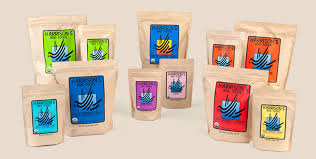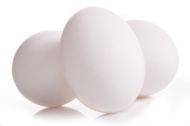
General Care for Birds
Nutrition
Birds require a balanced diet for optimal health. A diverse, species-appropriate diet is essential, including:Pellets: High-quality pellets should form the base of their diet.
Fresh Fruits and Vegetables: Offer a variety of safe fruits and vegetables. Some good options include apples, carrots, and leafy greens (avoid avocado, chocolate, and onion, which are toxic to birds).
Seeds: While seeds can be given in moderation, they should not be the primary food source as they may lead to malnutrition.
Calcium: Provide a calcium source, such as cuttlebone or mineral blocks, to support bone health and egg-laying in females.
Water: Always provide fresh, clean water. Birds are prone to dehydration, so ensure their water is changed daily.

Enclosure and Environmental Needs
Cage Size and Space: Birds need ample space to move around. A cage should be large enough for the bird to stretch its wings, fly short distances, and move around comfortably. Ensure that the cage bars are spaced appropriately for the bird’s size.
- Birds should have a variety of perches and toys to prevent boredom and encourage exercise.
For parrots and large birds, a spacious, multi-level cage is ideal.
Temperature and Humidity: Birds are sensitive to temperature changes. Keep them in a stable environment, away from drafts, and maintain a temperature between 65–80°F (18–27°C). If you live in a dry climate, consider using a humidifier, as birds can be sensitive to dry air.
Light Cycles: Increased hours of daylight alert birds that spring is coming and it is time to mate. Unfortunately by keeping our birds in artificial light for 12, 14, or 16 hours a day keeps them in permanent state of reproductive stimulation. Try 12 hours dark and 12 hours of light. Dark time is with a thick cover in a quiet room.
Grooming
Nail Trimming: Just like other pets, birds' nails grow and may need trimming. Overgrown nails can lead to discomfort and may catch on perches, causing injury.
Beak Care: Birds naturally wear down their beaks, but if you notice any abnormalities, such as excessive growth or misalignment, seek veterinary care.
Socialization and Enrichment
Mental Stimulation: Birds are highly intelligent and require plenty of mental stimulation to stay happy. Offer toys, puzzles, and social interaction.Birds like parrots enjoy toys that they can manipulate, such as foraging toys or destructible objects.
Socializing: Many bird species are social and benefit from interaction with their owners or other birds. If you have multiple birds, ensure they get along, as some species may become territorial or aggressive.
Common Bird Health Issues
1. Obesity
Birds that are overfed or not allowed enough exercise can become obese, leading to heart disease and liver problems.Monitor their diet, avoid too many fatty or high-sugar treats, and encourage exercise by offering flight opportunities or toys.
2. Feather Plucking
Feather plucking is a common behavioral problem in birds and can be caused by stress, boredom, or underlying medical issues.If your bird begins plucking its feathers, a vet should assess the cause and recommend appropriate treatment.
3. Respiratory Infections
Birds are very sensitive to airborne pollutants, including smoke, fumes, and strong chemicals. Respiratory infections are common and may manifest as wheezing, labored breathing, or discharge from the eyes or nose.Ensure your bird is kept in a clean, well-ventilated area, and avoid exposing it to smoke or toxic fumes.
4. Gastrointestinal Issues
Birds can suffer from diarrhea, constipation, or vomiting, which may be caused by diet issues, stress, or infections.Any change in droppings, such as persistent diarrhea, should be examined by a vet.
5. Egg-Laying Problems
Female birds occasionally have reproductive problems such as egg binding and chronic egg laying. Several factors stimulate birds in their natural habitats, to go through physical changes so they can reproduce. Some of the factors below can help. Feel free to contact us for additional information

Nesting: Access to a nest box or nest materials stimulates further egg laying. Allowing free flight provides access to dark enclosed areas. Remove any boxes if present. Place wire grating in the cage bottom to avoid access to newspaper, bedding or other potential nesting materials. If out of cage time is given, have your birds wings clipped to ensure she is not accessing additional nesting areas.

Medical Prevention: If environmental manipulation is unsuccessful, your pet may then require medical treatment to control egg laying. Effective hormonal treatments are available when used in conjunction with environmental changes. In some situations surgery may become necessary. Consult your avian veterinarian and a tailored treatment protocol will be made with your birds needs in mind.

Veterinary Care - Some birds get gastroenteritis or ingluvitis (sour crop) and will have diarrhea or regurgitate. Your bird should be seen 1-2 times per year by your avian veterinarian for an exam, stool check, and diagnostics if needed. Birds hide symptoms as long as possible when you notice something may be wrong: they are very sick!








